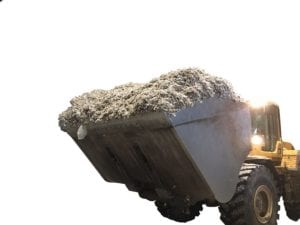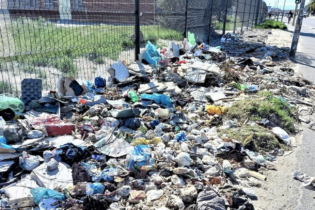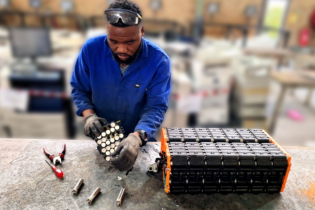 It may sound unbelievable, but it’s true: it’s more economical and, ultimately, more environmentally friendly to dispose of waste generated in the UK in South Africa. Warren Steele, managing director of UK-based environmental consultancy Resource Sustainability Projects (RSP), explains why.
It may sound unbelievable, but it’s true: it’s more economical and, ultimately, more environmentally friendly to dispose of waste generated in the UK in South Africa. Warren Steele, managing director of UK-based environmental consultancy Resource Sustainability Projects (RSP), explains why.
Economic benefits
The rands and cents work out as follows: European waste managers are subject to a landfill tax. “At the moment, that’s £88 per tonne (about R1 500),” says Steele. “On top of the landfill tax, we have a gate fee that we pay the owner of the landfill.” Most landfills in Europe are privately owned – unlike South Africa, where most landfills are owned by municipalities. “If you factor in transportation costs, that adds up to about £110 per tonne to landfill waste. The benefit of producing alternative fuel is that transport, operational and production costs come in at something in the region of £78 per tonne – about £10 per tonne more affordable than landfill tax alone,” Steele explains. In South Africa, it’s 10 times cheaper to landfill than in most European countries, this presents a challenge to creating the same cost-saving equation for disposing of waste locally. So saying, there are more and more private companies with global parents that want to create standardised net-green solutions across the entire architectures of their businesses. This is one of the factors that has prompted RSP to look at partnering with South African waste management companies more seriously. Another factor is the fact that South African landfilling must soon become more expensive of necessity, as legislation creates an environment for higher resource recovery targets and drives separation at source. “We’ve witnessed significant growth in the sector in South Africa over the last couple of years, and our South African partners have conducted research into labour and equipment costs, cost recovery and return on investment models. The result is that we’ve judged the market to be ready for our solutions as of August this year,” explains Steele. The company has also been in discussions with one of South Africa’s major cement suppliers concerning the supply of SRF for the klinker process – a much greener option than currently used in South Africa.RSP credentials
RSP deals specifically with waste processing, waste transfer and the export of processed wastes as alternative fuels into Europe, North Africa and, most recently, South Africa. “Over the last three years, RSP has become one of the largest alternative fuel suppliers in the European market. We deal with clients in Germany, the Netherlands, Denmark and now Egypt in the African market,” says Steele. “Our team in Europe builds contracts for the supply of alternative fuels for Waste-to-energy, heat recovery and cement burning. On the cement side, they use the SRF. This might be confusing because, in South Africa, SRF is commonly known as RDF, but in Europe we call it SRF because we use this specific material for cement production as an alternative to fossil fuels. RDFs are manufactured from wetter waste streams, typically derived from household waste collections and, as a result, burn more slowly, making them more suitable for electricity production and some heat applications,” he explains. South Africa has very few RDF production facilities and, therefore, RSP’s stock can be used to bulk up local supplies, creating a sustainable, reliable supply of alternative fuels for companies looking to secure energy from waste.SRF for cement manufacture
“On the SRF side, the product is presented as a ‘fluff’, which has a calorific value of around 20 MJ per kg, which can go up as high as 30 MJ. Material specifications are 20 mm x 20 mm with a thickness of less than 1 mm,” says Steele.SRF is, therefore, ideal for use in the klinker production process where limestone is converted to klinker at 1 450°C. This requires a high calorific value and fast combustion for the process to work. After the limestone is converted to klinker, it is then converted to cement.
“In Europe, we provide SRF for companies like HeidelbergCement in Belgium,” says Steele.





